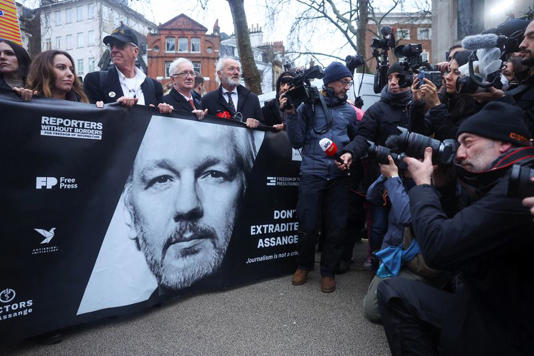Julian Assange, the founder of WikiLeaks, awaits a crucial ruling from London’s High Court on his extradition to the United States. This article examines the intricacies of Assange’s legal battle, the underlying geopolitical implications, and the broader significance for press freedom and human rights.
The Legal Battle: Assange’s extradition saga spans over a decade, with the United States seeking his prosecution for his role in releasing classified documents. The upcoming ruling on his appeal represents a pivotal moment in his fight against extradition. We delve into the legal arguments presented by both sides and analyze the potential outcomes of the High Court’s decision.
Geopolitical Context: Assange’s case intersects with broader geopolitical dynamics, including tensions between the United States and advocates of press freedom. We explore how his extradition is perceived in the context of international relations, particularly concerning freedom of speech, whistleblowing, and government transparency.
Human Rights and Press Freedom: The Assange case raises fundamental questions about human rights and journalistic integrity. We assess the implications of his potential extradition for the protection of whistleblowers, the role of the media in holding governments accountable, and the right to access information in the digital age.
Impact on Digital Journalism: WikiLeaks’ groundbreaking disclosures have reshaped the landscape of investigative journalism. We examine the impact of Assange’s legal battles on the future of digital journalism, including the chilling effect on journalists and media organizations reporting on sensitive issues of public interest.
Civil Liberties and Rule of Law: Assange’s case has sparked debates on civil liberties and the rule of law. We analyze the balance between national security interests and individual rights, the limits of government surveillance, and the role of international legal frameworks in safeguarding fundamental freedoms.
Global Solidarity and Activism: Assange’s plight has galvanized global solidarity and activism. We explore the grassroots movements advocating for his release, the calls for transparency and accountability in government actions, and the mobilization of civil society in defense of democratic principles.
Potential Scenarios and Future Outlook: In light of the High Court’s ruling, we outline the potential scenarios and their implications for Assange’s fate, extradition law, and the broader fight for human rights and press freedom. We also consider the possibility of further legal challenges and international interventions in the case.
Julian Assange’s extradition appeal represents a critical juncture in the intersection of law, politics, and journalism. As the world awaits the High Court’s decision, the Assange case underscores the profound implications for democracy, freedom of expression, and the rule of law in the digital age.
